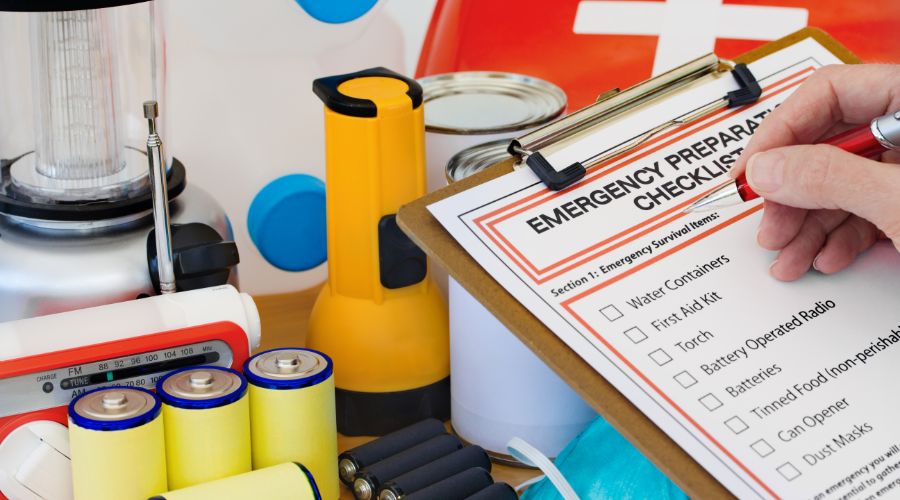Being a Covid 19 period, I’m writing this post against a backdrop of ailing economies, with terms such as ‘economic recovery plans’ taking a toll on our lives. What a perfect moment for such a write-up! That said, I must state that no business operator (especially a small business) would be at ease when there is a looming disaster such as this, not even one. According to experts, the vulnerability of companies has never been higher, given that disasters, whether man-made or natural, are now more consistent than ever.
In fact, a month or two rarely goes by without a fire outbreak, a flood, a tornado, a hurricane, or an earthquake. Based on research, almost more than half of small business enterprises shut their doors forever whenever a disaster strikes. However, there are ways for us to avoid being part of these terrible statistics; to have a thorough disaster preparedness plan in place. One of the best ways to do this is by using resource forecasting software from Prosymmetry to see what happens to resources when things change. This ensures that there are no big surprises for businesses as they should be able to predict what will happen to the business and any projects that they are working on. That’s just one method though. As another option, businesses might consider contacting an experienced Property Damage Restoration Company that could help with restoration in the aftermath of disasters.
Tips for Creating a Disaster Preparedness Plan
While everyone may have their own way of coming up with a plan that works for them (depending on the nature of business or preference, of course), here are some tips, which I believe will apply to every business owner out there, irrespective of the company they are running. I say this with a lot of confidence because I have seen many people apply them, and I have done so myself, never to be disappointed.
Discovering obvious risks
My father, he taught me one thing; to be aware of the potential dangers in the environment where I’m in. It is the same philosophy we should apply in business (I’m a high school proprietor). To come up with my disaster preparedness plan, I, first of all, thought about some of the most common disasters, such as floods, disease outbreaks, drought, and fires. Once I figured out these disasters, I started addressing each of them one by one. In the case of a fire outbreak, for instance, I purchased a total of five fire extinguishers, which are always on standby just in case the disaster strikes. I’ve also begun researching different commercial fire alarm systems to make the property as safe as possible. To add to these, I have contacts with multiple firefighters, which I can quickly call to arrest any inferno in the school. I also have a car to rush my students to the hospital when they become sick. Furthermore, in terms of the fire services, the ones in our town have things like fire reporting software which makes them an efficient option, as they also have the facilities to track the care of people who may have been caught in the flames of the fire.
Discovering less obvious risks
While all of us know of disasters such as floods and droughts, it is essential to realize that some catastrophes are hidden. They tend to catch us unawares when they come. Talk of Covid 19, for instance; no one knew that there would be a disaster that would threaten to bring the entire world to a standstill in this day and age. This disaster has left us with one lesson; to prepare for both what we know and what we don’t know. Now, nothing comes without engaging the mind. The best way to understand the less obvious risks to our businesses is to think and do research. If we Google “less common disasters,” a myriad of results will pop up. And we can even be more specific in our search. For instance, I may decide to search for “less common school disasters.” Once we nail down these disasters, we can then develop a preparedness plan to tackle them.
Having an emergency kitty
One thing we must always remind ourselves is that money plays an important role when it comes to dealing with business-related disasters. Thus, setting aside some money to help with a disaster is more than essential. And while cash is sweet, I don’t see any problem with depositing a fraction of the profit with our emergency kitty. Yes, we may not see the immediate importance of such a plan. Still, it does pay dividends, especially when a disaster comes without first sending a warning signal.
Taking advantage of disaster preparedness experts
However much we know about disaster preparedness, there are experts out there who know more than we do. Bringing such people on board is a good idea. They will help us identify the most likely disasters that can befall our businesses and find the best strategies for handling such disasters using the available resources. Of course, we may not find these experts on the cheap, but they are worth every dollar they ask for. This way, we can ensure that the business empires that have taken us years and many resources to build can flourish for years to come.



